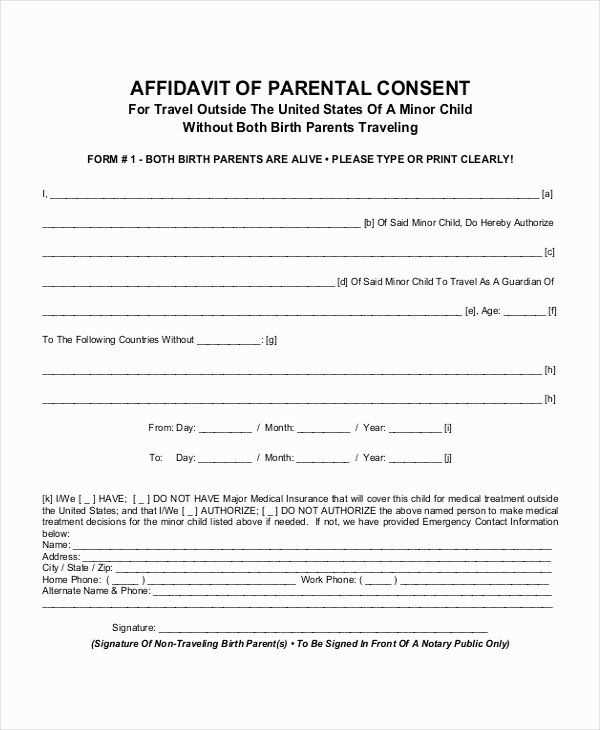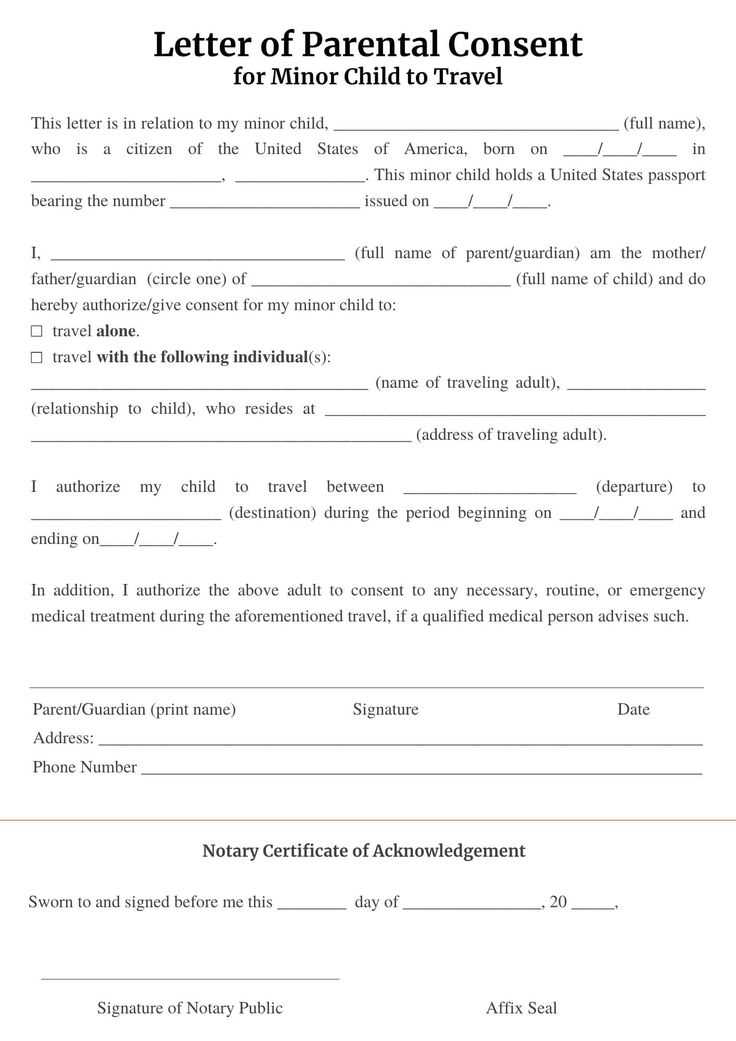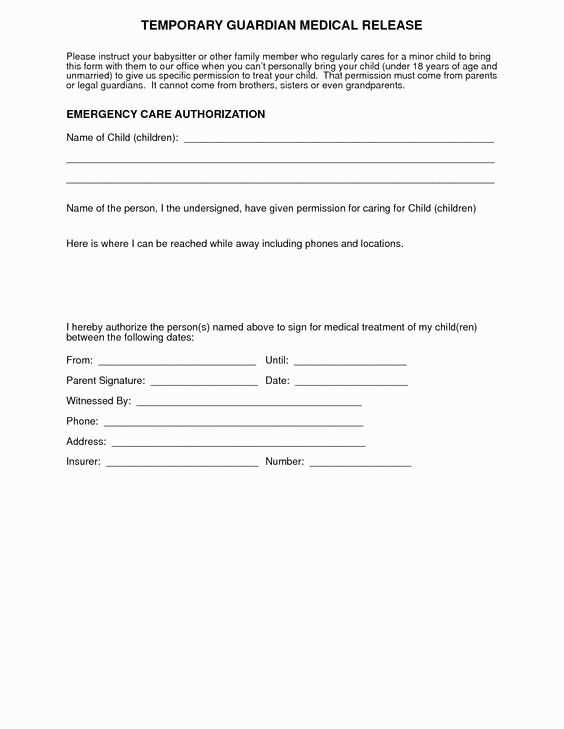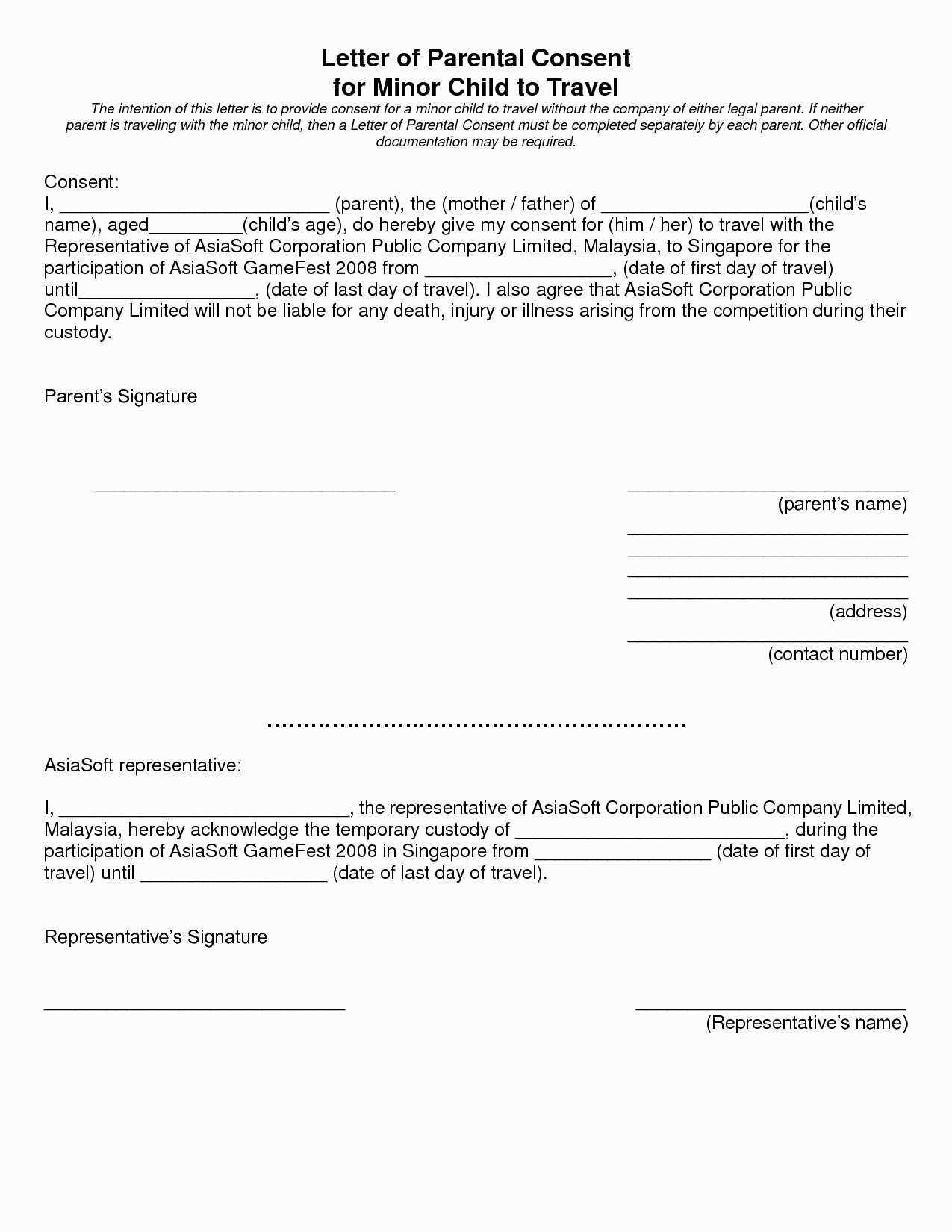Medical consent letter for grandparents template

When grandparents need to provide care or make medical decisions for their grandchildren, a medical consent letter is often required. This document allows grandparents to seek medical attention or treatment in the event of an emergency, ensuring that healthcare providers have clear permission to act. Having a well-drafted letter can avoid confusion and delays in critical moments.
The template for this letter should include essential details such as the child’s name, the specific medical procedures grandparents are authorized to consent to, and the duration of the consent. It should also contain contact information for both parents and emergency contacts. By clearly outlining these points, the letter ensures grandparents are empowered to act swiftly in situations where parental consent may not be immediately available.
Ensure that the letter is signed by the parents, preferably in front of a witness or notary, to give it legal weight. It’s also advisable to keep multiple copies in easily accessible locations, such as the child’s school, the grandparents’ home, and the family’s doctor’s office, for prompt access when needed.
Here’s the revised version:
To ensure clarity and avoid misunderstandings, a medical consent letter for grandparents should include the following key details:
| Section | Description |
|---|---|
| Grandparent’s Information | Include full name, address, and contact details of the grandparents providing consent. |
| Child’s Information | List the child’s full name, birth date, and relationship to the grandparents. |
| Medical Authorization | Clearly state the specific medical treatments or decisions the grandparents are authorized to make in case of an emergency. |
| Duration of Consent | Specify the period during which the consent is valid. |
| Signature and Date | Include a space for the signatures of the grandparents and the parent/legal guardian, with a date. |
This format helps ensure that all parties are clear about the responsibilities and the scope of the medical consent given by the grandparents.
- Medical Consent Letter for Grandparents Template
A medical consent letter for grandparents allows them to make decisions in case of an emergency while caring for their grandchildren. This letter is essential to ensure that grandparents have the necessary authority to seek medical treatment if needed. Use the following template to create a comprehensive document:
Template Example:

Medical Consent Letter
Parent/Guardian Information:
Name: [Parent’s Full Name]
Address: [Parent’s Address]
Phone: [Parent’s Phone Number]
Grandparent Information:
Name: [Grandparent’s Full Name]
Address: [Grandparent’s Address]
Phone: [Grandparent’s Phone Number]
Child’s Information:
Name: [Child’s Full Name]
Date of Birth: [Child’s Date of Birth]
Consent:
I, [Parent’s Full Name], hereby grant permission to [Grandparent’s Full Name] to seek medical treatment, including but not limited to emergency care, for my child, [Child’s Full Name], in the event of an illness or injury that requires immediate attention. This consent includes authorization to consult with healthcare professionals and make decisions on my behalf regarding medical procedures and treatments.
Emergency Contact:
Name: [Emergency Contact Name]
Phone: [Emergency Contact Phone]
Signature:
Signature of Parent/Guardian: ______________________
Date: [Date]
This document ensures that grandparents have the authority to act swiftly in emergency situations, ensuring the child’s well-being without delays.
Medical consent for grandparents is a critical document that grants permission for healthcare providers to offer necessary treatments in the event of an emergency or medical situation. Without this consent, healthcare professionals may face legal limitations in providing care, even if it is urgent. The letter ensures that medical decisions can be made swiftly, reducing the risk of complications or delays in treatment. It’s particularly important if grandparents are unable to make decisions themselves due to age, illness, or incapacity.
Ensure the letter clearly specifies the types of medical care allowed and any preferences or restrictions the grandparents may have. This can include treatments, medications, and procedures, which helps healthcare providers understand their rights and wishes. Additionally, the letter should be signed by a legal guardian or family member who can act on their behalf if needed.
A medical consent letter serves as a protective measure for all parties involved, preventing misunderstandings and ensuring that the grandparent’s health needs are met without unnecessary delay or legal complications.
Ensure that the consent form includes the names of both the child and the grandparents. Clearly identify the relationship between the parties involved to avoid any confusion about the authorization.
Details of Medical Treatment

Specify the type of medical treatment the grandparents are authorized to approve. Include details such as hospital visits, emergency procedures, or any planned medical interventions that may arise. This section should provide clarity on the limits of their consent.
Timeframe and Duration

State the timeframe during which the consent is valid. Whether it’s for a specific date or a general period, defining the duration helps prevent misunderstandings regarding the scope of the authorization.
Contact Information should be included for both the parents and the grandparents. This ensures that if any issues arise, the responsible parties can be easily reached.
Signature of Parents or Guardians is a necessary element to finalize the consent. The form should require the signature of the child’s parent or legal guardian to validate the agreement and show their approval of the arrangement.
Adjust the template to suit your specific situation by following these simple steps:
- Update Personal Information: Replace generic placeholders with accurate details, including the names of the grandparents, the children, and the healthcare provider.
- Adjust Dates: Ensure the template includes relevant dates, such as the date the letter is signed and any specific healthcare appointments or procedures.
- Clarify Permission Scope: Modify the sections where you specify the extent of medical authority granted. Be clear about whether it’s for routine medical care or more urgent situations.
- Include Medical Conditions: If applicable, list any relevant medical conditions that caregivers should be aware of. This helps the healthcare provider make informed decisions.
- Add Emergency Contact Information: Provide alternative contacts in case the primary contact is unavailable during an emergency.
- Review Legal Language: Make sure the document’s language aligns with your local legal requirements. If unsure, consult a legal expert to ensure compliance.
By carefully adjusting these details, you will create a more personalized and effective medical consent letter for your grandparents.
Ensure the authorization is signed by both grandparents and a legal guardian of the child. The document should clearly identify the medical procedures allowed, and include the name of the healthcare provider. Include a statement that confirms the guardianship status of the person granting the consent, whether they are a parent or legal guardian.
State the duration of the medical authorization. Some jurisdictions may require a specific time frame, while others allow ongoing consent until revoked. It’s essential to verify whether local laws mandate an expiry date for such documents.
Include a clause that releases medical professionals from liability for the child’s treatment during the authorized period. This ensures that healthcare providers are not held responsible for actions taken within the boundaries of the signed consent.
Confirm that the document adheres to local and state laws. Some regions require notarization or witness signatures for the consent to be legally binding. Check any requirements for notarization, especially if the document involves out-of-state care.
Clearly outline the rights of the child’s biological parents, ensuring their legal ability to override the authorization if needed. This protects the interests of the child and maintains legal clarity throughout the process.
Inaccurate Personal Information: Double-check the names, dates of birth, and contact details of all parties involved. A simple typo can invalidate the consent and cause delays in medical procedures.
Failure to Specify Medical Treatment: Always outline the exact medical treatments or procedures being consented to. Avoid vague terms like “medical care” and instead specify what is being authorized.
Unclear Authorization Scope: Clearly define the limits of the consent. Avoid general or broad statements, and ensure it’s clear whether the authorization applies to all treatments or specific actions only.
Missing Signatures: Ensure that both the grandparents and any required witnesses or medical professionals sign the form. A form without all necessary signatures may be considered invalid.
Absence of Witness or Notarization: If required, include a witness or notary verification. Missing this step can make the form legally questionable, especially in emergency situations.
Incorrect Date: Always add the correct date of signing. A missing or incorrect date can cause confusion about the validity of the consent in case of legal disputes.
Ambiguous Language: Use clear, straightforward language. Avoid medical jargon or legal terms that may confuse the person granting consent. The form should be easily understood by non-experts.
Review and revise the medical consent letter when any significant change occurs in the guardianship, medical circumstances, or contact information of the grandparents. Make revisions promptly to ensure that the document remains accurate and legally valid.
- Update the document when there are changes in the child’s health status, medications, or special needs that may require specific care.
- Modify the consent letter if there is a change in the legal guardianship or custody of the child.
- Ensure the contact details, including emergency contacts, are current, especially if there is a relocation or change in phone numbers or addresses.
- Revise the document whenever the duration of the consent changes, such as when it extends to cover longer periods or specific events.
After revising the document, make sure it is signed by all necessary parties again. Revisions may also require notarization, depending on your local laws. Always check the local legal requirements to ensure the revised document is enforceable.
To ensure that grandparents can legally authorize medical treatment for their grandchildren, the medical consent letter should include the following key points:
- Full Legal Names: Clearly list the names of both grandparents and the child receiving treatment.
- Explicit Consent: Specify the types of medical treatments for which consent is granted, such as emergency care, routine check-ups, or specific procedures.
- Duration of Consent: State the time frame during which the consent is valid, such as a specific date range or until a particular condition is resolved.
- Emergency Contact Information: Provide current contact details for the grandparents and any additional emergency contacts.
- Signature and Date: The letter must be signed and dated by the grandparents to validate the consent.
This letter should be presented in a clear, formal manner to avoid confusion during emergencies. Ensure that all necessary parties, including medical professionals, have a copy of the letter for quick access.